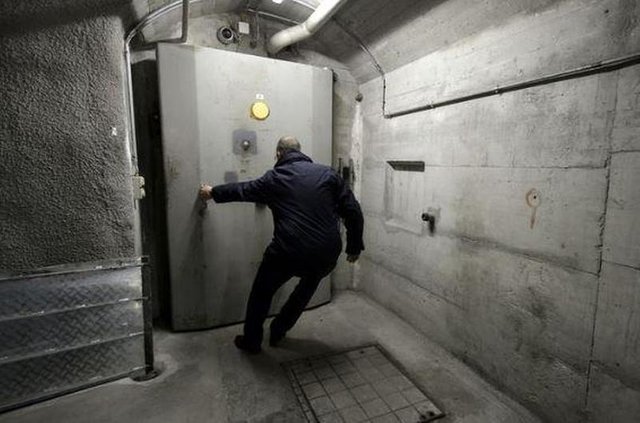
Interest in cryptocurrencies is growing steadily all over the world despite the stagnant market prices. As these digital assets mature, one issue confronting the industry is cryptocurrency storage – how to securely keep your coins away from bad actors.
For the techies, cryptocurrency storage isn’t a big issue: to them, taking care of a string of alphanumerics, maintaining a secure wallet with all the cumbersome passwords, and/or keeping crypto offline through a USB, is a piece of cake. But that isn't the case for all investors and traders.
Non-technical crypto investors and traders, however, face a huge challenge of keeping their crypto assets safe. In their bid to maintain high-security measures, they experience more challenges in the end. Such problems include the loss of passwords or public keys, and mix-ups when moving coins from one wallet to the other.
These culminate into millions in crypto assets going down the drain. And the issue is, once you make a mistake, especially in transferring funds, there is no solution for you to recover them.
The cryptocurrency storage problem is even bigger for families and corporations that pour huge sums into these coins. For this particular group of investors, relying on simple security measures of a safe password and private key practices or using USB-based storage is in itself a risk, as their investments are larger than average.
That's why crypto custody firms were born to tackle the problems associated with safekeeping and managing virtual currencies.
Like custodians in the traditional financial system, crypto custody firms hold your digital assets on your behalf and take care of all the security measures needed to keep your funds safe.
Whether it's an exchange engaging in highly-secure cold storage or a custody firm storing coins for customers, the ultimate goal of these firms is to minimize the risk of you or a large investor losing their funds to bad actors. They also sometimes take charge of managing the activities of your cryptocurrency account.
Crypto custodians store their customers’ crypto assets in different ways. For small to mid-sized amounts, coin storage is normally done with USBs, and some are locked in computers completely disconnected from the internet. When it comes to huge sums, including assets of family and other large investors, crypto custody firms bury these large amounts under decommissioned military bunkers, places where even James Bond would fear to make a move.
As the market grows, these custody firms have increased in number and are developing sophisticated solutions. Crypto exchanges and individuals have also devised various cold storage means for their digital assets. The big question is, are they providing the right form of custody for the cryptocurrency industry? And for those who engage in self-custody, are there enough security measures to keep their funds safe when hackers come in town?
This brings us to the many issues that face crypto custody, issues that need solutions as crypto matures and catches the eyes of conglomerates and individuals as well.
Problems with cryptocurrency storage (custody)
Be it keeping one’s crypto assets offline by using USB-based storage or relying on high-grade military bunkers buried under mountains, crypto custody, especially cold storage, poses a big problem that should be tackled as the industry matures.
-
Current custody solutions haven’t stopped bad actors.
This is evident in the recent case with QuadrigaCX, a Canadian-based exchange where coins that were supposedly locked offline had become inaccessible because the CEO, who is said to have had access to all the account details, was no more.
-
The issue of usability of crypto assets.
As noted by Robert Hackett on Fortune, freezing coins limits investors and traders from leveraging the fluctuating market forces to earn more or make buying and selling decisions.
This prevents traders and investors from participating in what Robert refers to as ‘cryptoeconomic networks’. These networks allow virtual currency owners to stake their funds in order to provide support for a blockchain project. As explained by Mr. Hackett, investors who are not able to participate in these networks are cut out from the benefits of return on investments.
To take this further, locking crypto assets, thus rendering them idle, is a phenomenon which could spark legal debates according to experts. It was noted in a 2018 report by an analyst at Satis Group, Sherwin Dowlat, that the refusal of partners to participate in cryptoeconomic markets might be interpreted as “a breach of fiduciary duty”, thus leaving money on the table could be considered negligence in legal parlance.
With custody issues piling up, many new firms are designing solutions and one such firm bent on tackling the issues head-on is Anchorage.
Solving the crypto custody problems
At the moment, there are a number of firms providing crypto custodial services, including San Francisco-based exchange Coinbase, Kingdom Trust, Xapo, and the Winklevoss-owned Gemini. Other companies that have also announced their plans to launch regulated custodial services include Bakkt and Fidelity Investments, as well as Anchorage, which is building new crypto custodial technology that leverages behavioral data and biometrics to keep crypto assets safe.
As crypto grows in usage and as the industry matures, cutting-edge custodial solutions will help keep users assets safe whiles providing everybody the opportunity to engage in cryptoeconomic networks.
Originally posted on Crypto Insider : https://cryptoinsider.com/cryptocurrency-storage-custody-problems/